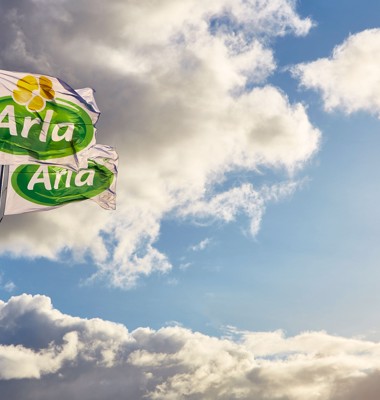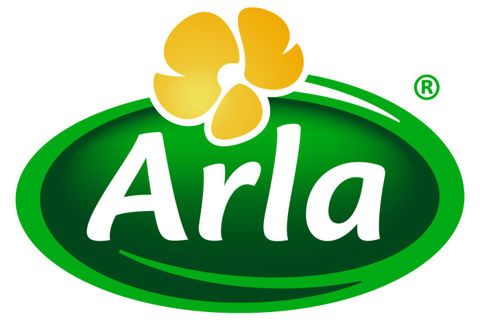New cost-saving programme to transform Arla Foods
- Read time:
- 2 min

- Published:
- 20 April 2018
- Contacts:
- Press contact
European dairy cooperative Arla Foods has launched an internal transformation programme called “Calcium”, which is set to deliver more than 400 million euro of savings by the end of 2020 through improved efficiency in all areas of the company. The programme looks to boost Arla’s performance to the benefit of its farmer-owners and further strengthen the company’s investment capability.
With Good Growth 2020 Arla has a strong strategy in place that has been growing the company’s business successfully and remains right for the trends that are driving the global food and dairy market.
Ongoing cost savings and efficiencies are a vital part of Good Growth 2020 strategy, and consequently Arla has initiated a three-year transformation programme called “Calcium” which will change the company by creating significant efficiencies with two main purposes in mind:
- To improve returns to its farmer-owners and maintain a competitive milk price
- To reinvest into business areas that fuel growth
The internal Calcium programme, which is already underway, will deliver a run-rate of at least 400 million euro of savings by the end of 2020, and the profit impact will build throughout the life of the programme.
While the transformational aspirations of Calcium have been carefully planned since the end of last year, the scope of the cost-savings ambition has been increased by Arla’s management in recent months in light of unique external challenges facing Arla as a result of the extent of the company’s exposure to the British pound and unfavourable developments in commodity markets.
“At Arla Foods we have always had a culture and strong track record of creating efficiencies and removing costs for the benefit of our farmer owners, customers and consumers, so in that sense nothing is new,” says CEO of Arla Foods, Peder Tuborgh.
“What is new, however, are two unexpected developments that have hit us, both of which are outside of our control. These are the currency impact of Brexit on our actual performance and the impact of the reversal in commodity prices on fat and protein on our relative performance against our international peers. These developments have negatively impacted our profitability, and as a responsible business we have to act to remove the impact of these new developments, and the action we are taking is a three-year transformation programme which cuts across our whole business and sets out to restore our profitability,” he says.
Increasing returns to farmers
The Calcium programme will cover activities throughout Arla, covering production, products, procurement, promotional marketing and people. It aims at unleashing the full potential in Arla’s organisation by transforming ways of working, reducing bureaucracy and complexities, and cutting costs.
Of the total cost reduction of more than 400 million euro, Arla expects to return approximately 300 million euro to the farmers through the farmgate milk price with the additional savings being reinvested in the company’s Good Growth 2020 strategy to fuel further growth and improve profitability.
“Calcium has a high level of involvement amongst our employees and is galvanising and energising our people to deliver better returns for our farmers, and I am incredible proud of them,” says Peder Tuborgh.
Whilst the Calcium programme is already underway, it is too early to disclose publicly what the specific consequences will be within specific areas of the company, including what number of jobs that will be affected by the ongoing work. Arla expects to communicate openly about the process over the course of the programme.
Arla Foods is an international dairy company owned by more than 8,400 farmers from Denmark, Sweden, the UK, Germany, Belgium, Luxembourg and the Netherlands. Arla Foods is one of the leading players in the international dairy arena with well-known brands like Arla®, Lurpak®, Puck® and Castello®. Arla Foods is focused on providing good dairy nourishment from sustainable farming and operations and is also the world's largest manufacturer of organic dairy products.
Press contact
